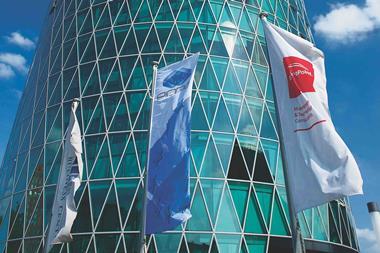The pension fund for the Dutch metals and electronics industry PME wants to halve the carbon emissions from its equity and corporate bond portfolios by 2030, according to its new climate action plan.
PME is the first Dutch pension fund to set an absolute carbon reduction goal.
Daan Spaargaren, a responsible investment strategist at the fund, hailed the step as “a strong break with the past”.
He said: “Up until now, we only looked at emissions as a percentage of assets under management. We will continue to report this, but we wanted to adopt a different kind of target because we want the companies we invest in to also realise an absolute reduction of their emissions.”
Paris agreement
PMT, the other Dutch metals scheme with €74bn in assets under management, also published an updated climate plan recently. the pension fund did not adopt a concrete CO2 reduction target for its listed investments. Instead, it vowed to bring all its investments in line with a 1.5°C pathway by 2030.

“At this moment, only 29% of the companies in our equity portfolio are on track to reach this, so there’s still work to be done,” said PMT’s Rebecca Wörner.
The fund does, however, have a concrete reduction target of 40% for its (non-listed) real estate investments, which it shares with PME.
Besides, PMT also has carbon intensity targets for several carbon-intensive industries such as airlines, auto makers, oil and gas firms and the steel industry. These sectors together account for the bulk of global CO2 emissions.
As signatories of the climate commitment for the Dutch financial sector, both PME and PMT had promised to publish their 2030 targets for CO2 reduction by the end of 2022.
Healthcare scheme PFZW already adopted a 50% reduction goal in July this year.
PFZW’s carbon reduction target is, however, a relative one whereby CO2 emissions are compared to the value of a firm on the stock exchange or its revenues.
Up until now, almost all asset managers and pension funds have chosen relative reduction goals which tend to be easier to reach.
1.5°C
Even though the 1.5°C goal of the Paris Agreement is deemed no longer tenable even by the United Nations, PMT and PME are determined to stick to it. “In the end, this 1.5°C goal is just a reference benchmark,” noted Spaargaren.
As governments and companies move away from this 1.5°C goal, it will become harder for PMT and PME to stick to it, Spaargaren acknowledged.
“We have been wondering whether to adjust our ambitions, but for now have decided not to. We will, however, painstakingly follow the progress of our targets and whether these remain in lockstep with the developments we see at the companies and projects we invest in,” he said.
For the original article, go to Pensioen Pro.














